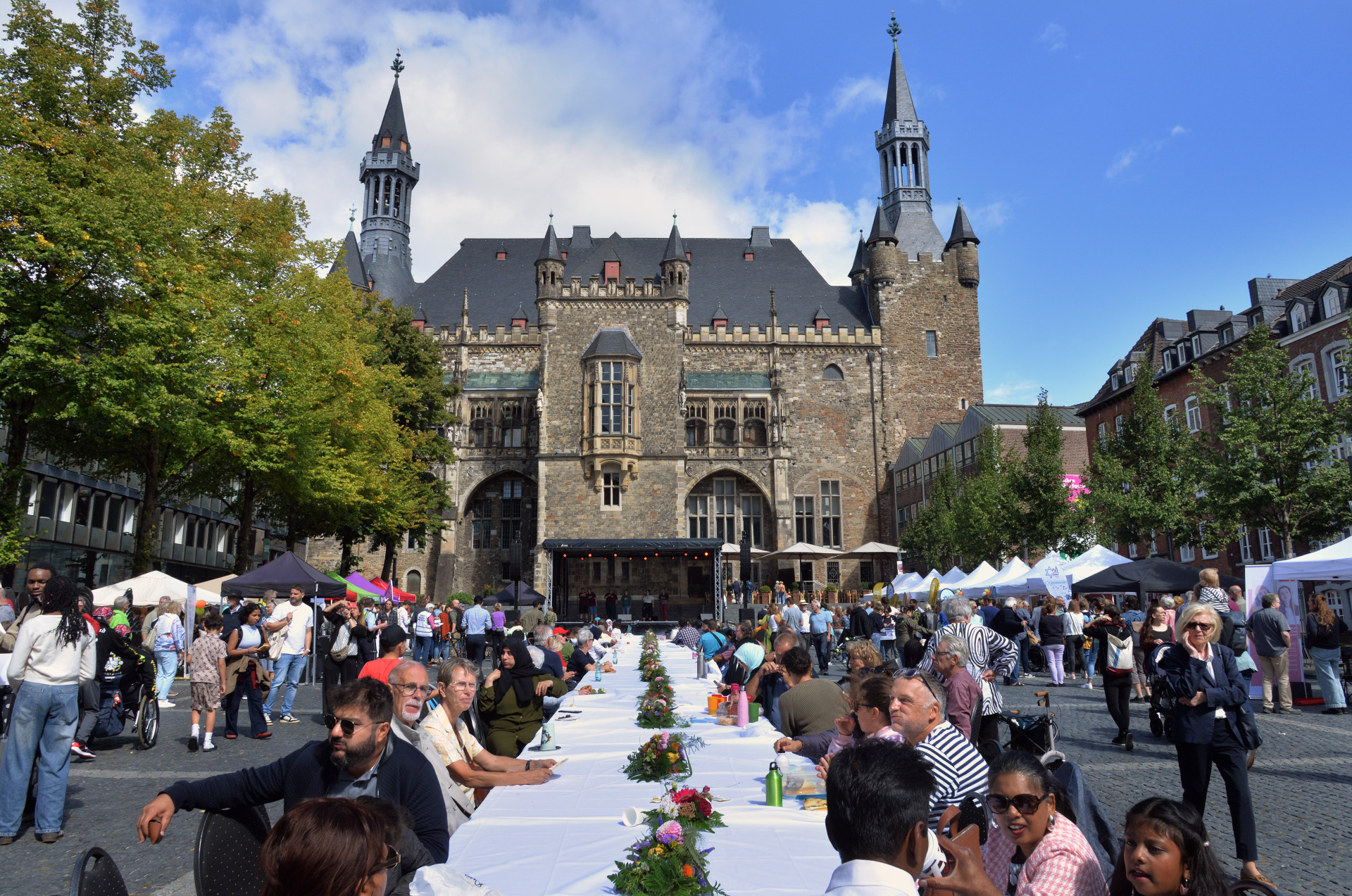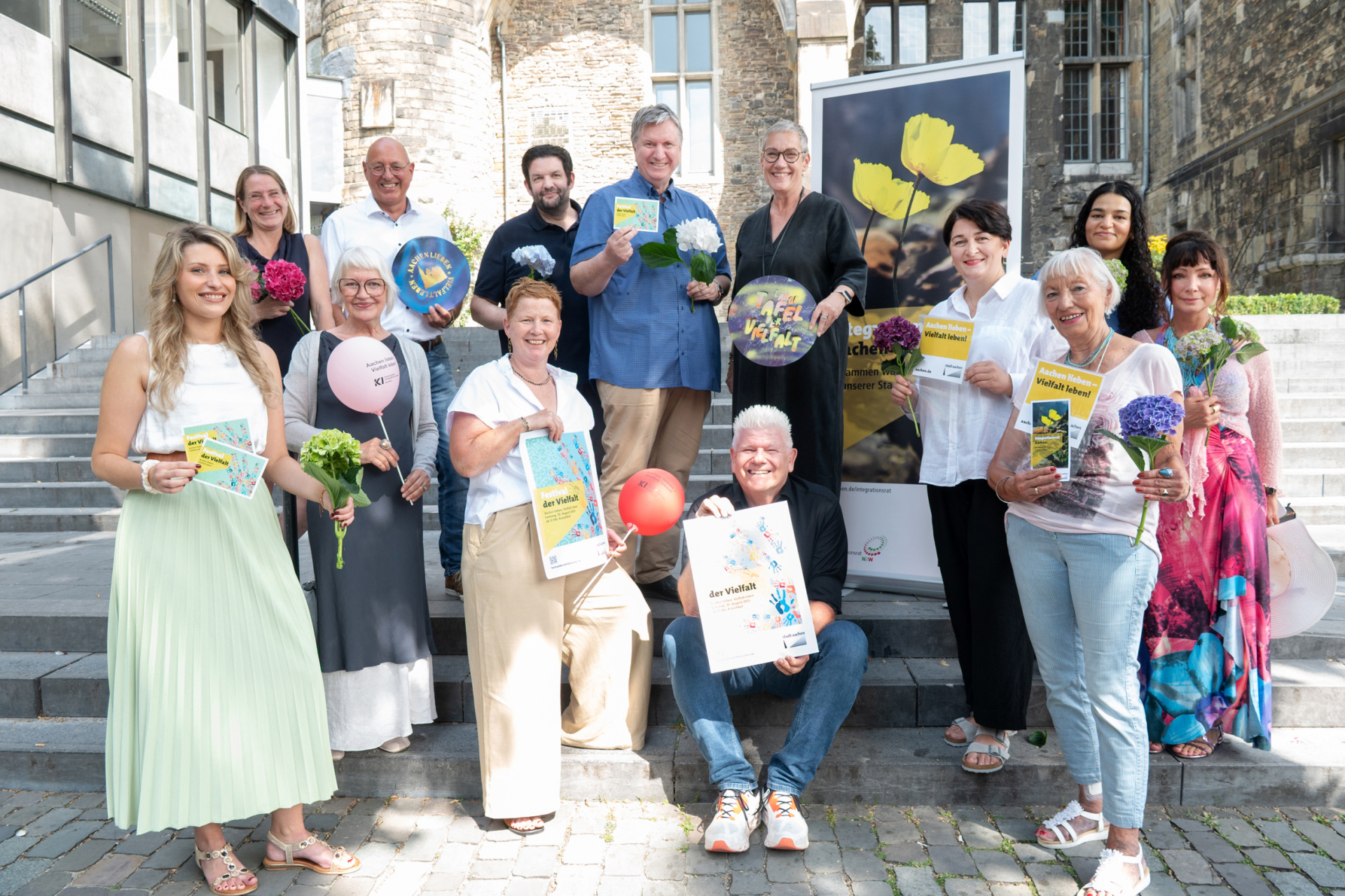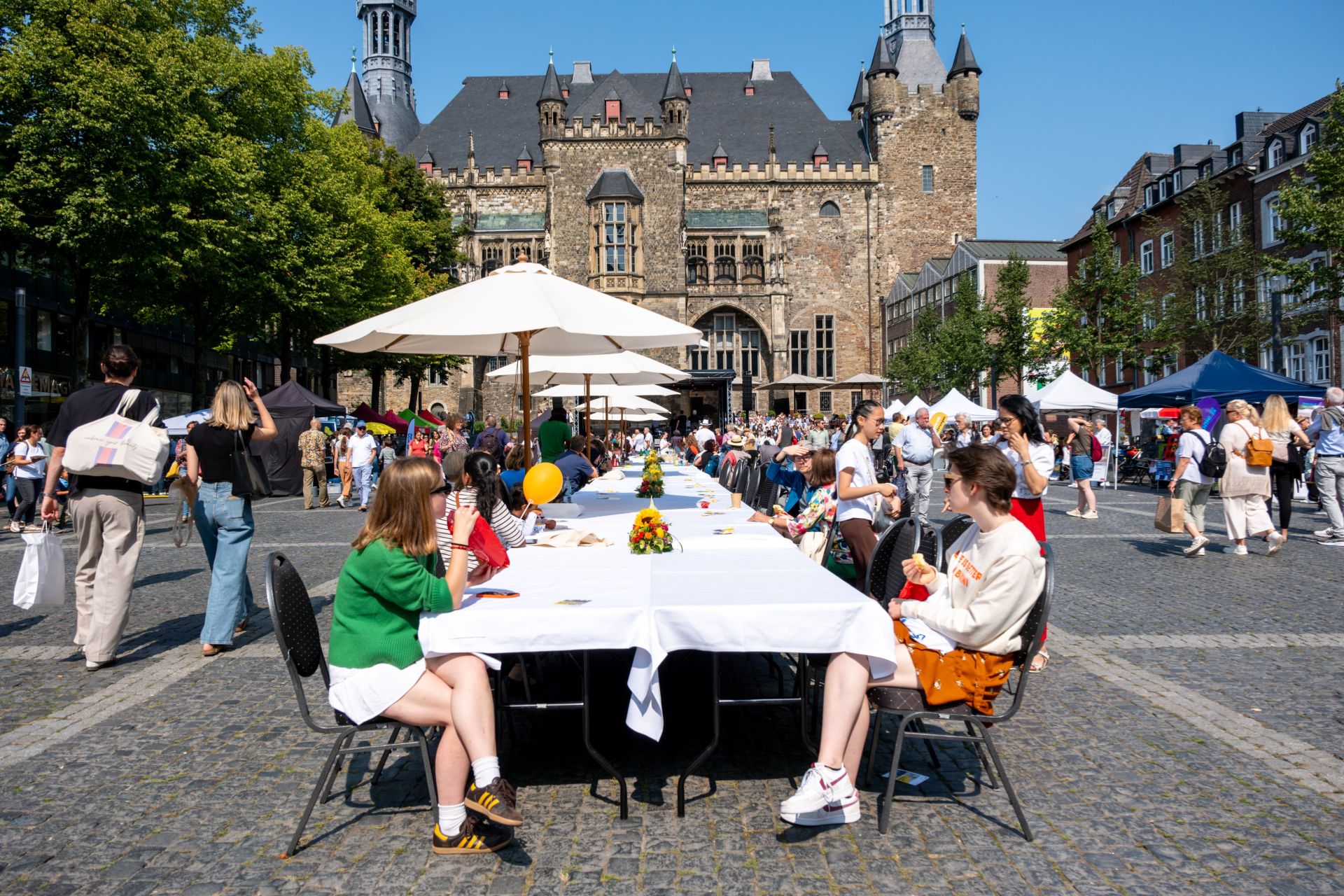
Integration Council
When guest workers were recruited, it was assumed that the migrants would not settle permanently. However, when the "guest workers" became immigrants in the early 1970s, they wanted to have a say and participate in political decisions in their new home country. Aachen's politicians also see the political participation of immigrants as a necessity.
The first step was the Working Group for the Care of Foreign Citizens in 1973. Politicians, civil servants, charities and representatives of migrant self-organizations selected by the city council discuss social issues affecting migrants. The working group does not have many rights, nor is it elected.
The Foreigners' Advisory Council replaces the working group after ten years. It is elected by Aachen's migrants; administrative officials or representatives of welfare organizations no longer have a say. However, the city council - on which no migrants sat at the time - delegates members to the body, which has been called the Integration Council since 2004.
The Integration Council and its predecessors see themselves as a mouthpiece and representative of the interests of migrants living in Aachen. From the very beginning, it has fought for more political influence. The Integration Council is allowed to distribute funds to migrant self-organizations and pass its own resolutions. It must be consulted on city council decisions that affect immigrants, but is not allowed to participate in decision-making. Many consider the Integration Council to be a fig leaf, which is one of the reasons why voter turnout among immigrants is falling.
Integration council election 2025
The elections for the Integration Council will take place on September 14, 2025. This democratically elected body is committed to the interests of people with an international family history: political participation - education - work - social & cultural participation - measures against racism - integration of new immigrants - equal opportunities - promoting potential
Who can vote?
Foreigners who have a settlement permit or residence permit - All EU citizens - Germans who have another nationality - Persons who have been naturalized in Germany - Children of foreign parents who have become German by birth - Resettlers - Stateless persons - Refugees who have been recognized as persons entitled to protection
Use your voice to actively shape coexistence in Aachen!
State Integration Council Elections Flyer
State Integration Council Elections Flyer 2
Integration Council NRW - Elections
Who is standing for election in the city of Aachen?
Five list combinations and one individual candidate are up for election:
MIT-Aachen - Migrants for Integration and Participation; ADZ - Aachener Demokratische Zusammenarbeit; Barrierefrei, Brückenbauen, Inklusion und Vielfalt; Hevî - Hoffnung für Alle; individual candidate Ahmet Tarak; WIR für Chancengerechtigkeit und Integration.
There are around 65,000 eligible voters in Aachen: Anyone who is at least 16 years old and has had their main residence in Aachen for at least 16 days before 14 September, is a foreign national or has obtained German citizenship through naturalization or in accordance with Section 4 (3) of the Citizenship Act is eligible to vote.
Press releases
What is the Integration Council?
The Integration Council represents your interests
Around 255,000 people live in Aachen.
One third have an international background.
These people have roots in over 160 countries.
They bring a colorful mix of different
languages, cultures and religions to the city.
The Integration Council gives them all a voice.
Aachen is their home. The Integration Council represents your interests, including- in housing and living conditions
- access to school and work
- experiences of exclusion and racism.
- If you have any questions, please contact your integration council!
Important: The Integration Council does not solve the problems of individual people. It primarily represents the interests of naturalized citizens and people with a migration background in the city.
Possible topics
Integration affects all areas - schools as well as the world of work, leisure and life in the district.
The Integration Council is committed to ensuring that Germans and migrants live together on an equal footing.
Its work aims to promote tolerance and respect at all levels of political life.
Possible topics include- Political participation
- Education
- Work
- Social & cultural participation
- Measures against racism and discrimination
- Integration of refugees
- Promotion of natural multilingualism*
What is the Integration Council?
The Integration Council is a democratically elected body.
It is part of city policy. Members of the city council*, naturalized citizens and representatives of people with a migration background work together in the Integration Council.
The aim is to ensure good cooperation.
Above all, however, it is about having a political say in your areas of life! The Integration Council therefore represents your concerns.
In Aachen, the Integration Council consists of 21 members.
The people in the city with a migration background elect 14 representatives to the Integration Council.
The city council* appoints seven councillors* who belong to different political parties.
The Integration Council is elected every five years. The election of the Integration Council usually takes place on the day of the local elections.
Through cooperation with the council members, the decisions of the Integration Council are transported into city politics.
For example, by submitting questions* and motions* to the city council. The city council must also consult the Integration Council on certain issues.- Would you like to know how political participation works in your city?
- Would you like to attend a public meeting of the Integration Council? Talk to us!
* Explanation of the terms
City council:
An assembly of elected persons in a city. They discuss and decide on coexistence and important urban issues such as transport, education, the environment, the economy and culture.Councillor:
A member of the city council, i.e. a politician. The member is elected by the citizens.Inquiry:
A question about the state of a situation, e.g. "How many kindergarten places are there in the city?" Or a question about what the city council is planning. A question can be submitted in writing or verbally.Request:
A request to the city council, e.g. "We request that a bilingual kindergarten be set up" or "We request that there be more language courses for working people".Natural multilingualism:
When a child grows up with several languages and learns them all naturally

